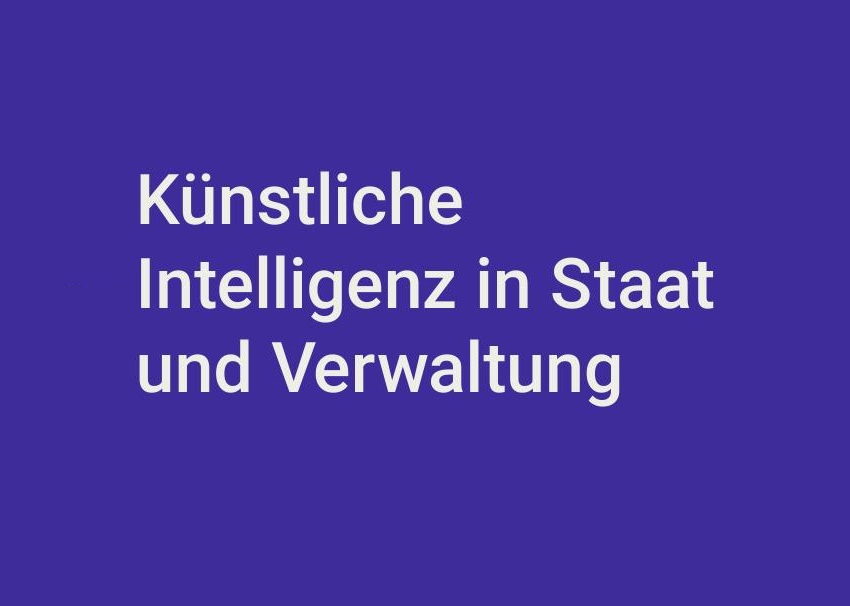AI Management

People don’t usually associate “the administration” with any particular innovative strength. But digital technologies may be able to leverage unrecognized potential. Automated systems and AI seem predestined to take over standardized bureaucratic procedures and decision-making processes. The project focuses on the opportunities and challenges associated with AI in administration and develops regulatory and safeguard mechanisms.

The question of how the state should not only regulate forms of artificial intelligence in general, but also deploy them itself, is as yet uncharted territory in jurisprudential research. Achieving economic efficiency and time savings through AI applications are also attractive goals for the public sector.
Public administration is already shifting standardized processes and decisions to algorithm-based systems and using the analytical power of complex software applications for government tasks (e.g., in fully automated tax assessments or social administration procedures). However, if the state also wants to include artificial intelligence in its repertoire of actions, it is subject to special requirements. The use of artificial intelligence must first and foremost be measured against the constitutional principles of the Basic Law: Only within the framework of the principles of democracy and the rule of law may adaptive software applications be used in the context of state power. In addition, the structural principles and simple-law norm requirements of the respective field of special administrative law must be observed.
The project pursues the goal of examining the special challenges and perspectives for the state use of artificial intelligence from a legal perspective. It drafts the normative framework for a digitized but democratically controlled state administrative action and accompanying safeguards (such as transparency and justification obligations). In order to be able to properly grasp the structural changes resulting from new administrative technologies, not only a legal dogmatic analysis is required, but also a holistic view of the phenomenon of “digitization of the administration.
“The question of how the state should not only regulate forms of artificial intelligence in general, but also deploy them itself, is as yet uncharted territory in jurisprudential research. Achieving cost effectiveness and time savings through AI applications are also attractive goals for the public sector.”
Dr. Hannah Ruschemeier
AI administration: Artificial intelligence in state and administration
Project start: 01.01.2020
Research partner: German Research Institute for Public Administration (FOEV)
Participating researchers

